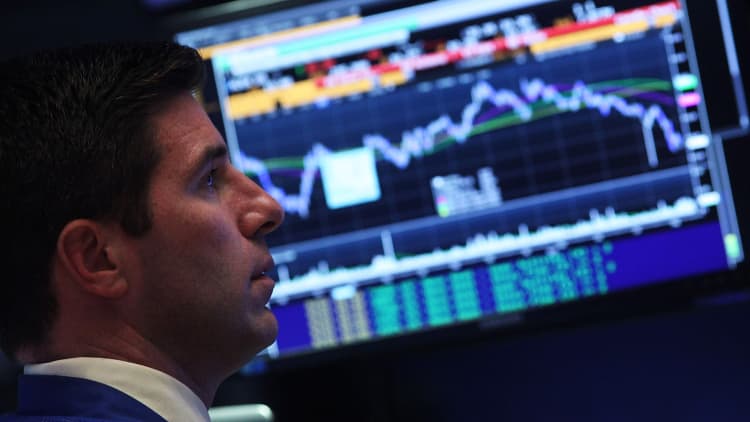


The financial markets appear more ready for an interest rate increase by the Federal Reserve later this week than many traders believe, longtime stock bull Jeremy Siegel said Tuesday, two days before the highly anticipated decision by the central bank.
The professor of finance at Wharton told CNBC's "Squawk Box" in an interview that he believes the first hike in nine years will happen Thursday, though he added that "it's a close call."
"Let's get it out of the way," he said, adding the uncertainty surrounding the guessing game about any action has actually been hurting stocks more than an actual move.
Stephen Parker, portfolio manager at JPMorgan Private Bank, agreed in a separate CNBC appearance. "I'm hoping they do, in fact, raise rates."
Read MoreTom Lee: Here's why the bottom in stocks may be near
"Even if we get a 25 basis point increase with dovish language, and a lower dot plot, I think we could have a stock market rally," Siegel said Tuesday. The "dot plot" referenced measures the projections of where Fed policymakers stand on the future for rates. "I think they're going to come down dramatically for 2016."
Appearing on CNBC nearly two weeks ago, he had predicted a day before the government's solid August employment report a 50-50 chance of a September rate increase.
Meanwhile, Nobel Prize-winning economist Robert Shiller told "Squawk Box" on Tuesday he sees signs of a stock market bubble, when looking at divergent investor sentiment: concern about valuations but confidence in the market short term.
Read More Robert Shiller: THIS is the sign we're in a bubble
The Fed could hold the key to the market's future. It's two-day September meeting begins Wednesday, with the policy statement on rates released at 2 p.m. ET Thursday, along with economic projections, followed by a news conference by central bank chief Janet Yellen at 2:30 p.m. ET.
The CME FedWatch tool—which tracks daily market reaction on potential changes to the fed funds target rate—puts the probability of a rate hike this week at 23 percent, with the chances increasing in the coming months.
"All those probabilities ... they are predicated on the assumption that the Fed will immediately move to the midpoint of the range of the fed funds," Siegel contended. "They may not. There is some indication they may stay at the low end of the fed funds," which would mean the rate increase could be smaller than 25 basis points.
"I don't think the assumption that traders have not built in anything like a rate increase in is also an unwarranted assumption," he added.
"When you look at the U.S. economy and at places like Europe the story is actually improving," Parker said. "Even with the weakness in China, there is a positive economic story out there."
According to many Wall Street economists, the odds of the first Fed rate increase in nine years seem more evenly split.
High Frequency Economics' chief U.S. economist, Jim O'Sullivan, told CNBC the Fed should move but probably won't because they won't want to surprise the markets.
"They will counter that by saying it is very close. The key is labor market improvement," he said. "Will the unemployment rate continue to fall? That's where the global turmoil and the markets come in."
The recent financial market turmoil on concerns about China's economy is seen as a complicating factor for central bankers who have to gauge whether those factors could impact U.S. growth and jobs.


